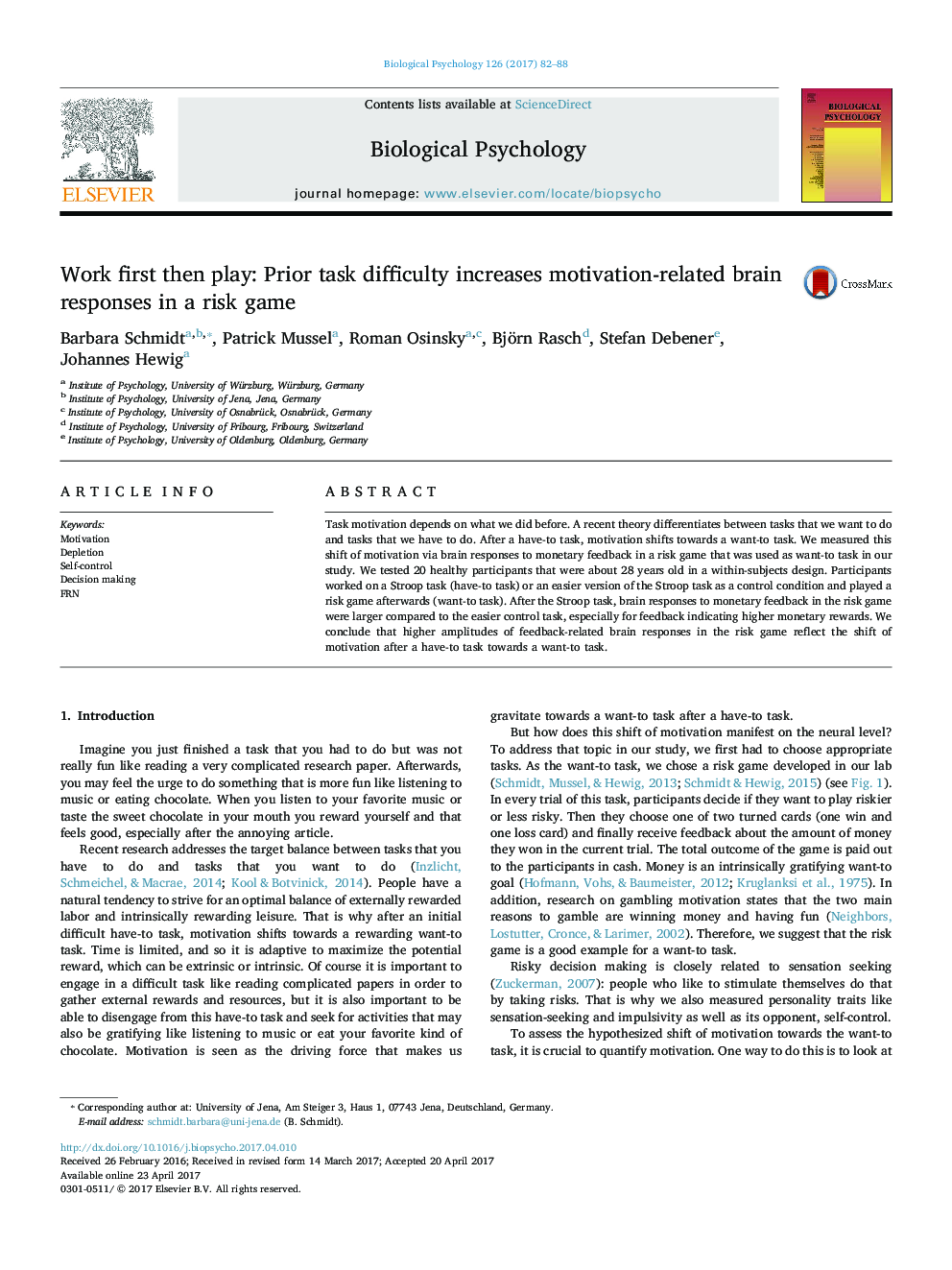| Article ID | Journal | Published Year | Pages | File Type |
|---|---|---|---|---|
| 5040427 | Biological Psychology | 2017 | 7 Pages |
â¢Motivation shifts can be measured with amplitudes of event-related brain potentials.â¢After a difficult Stroop task, FRN amplitudes are elevated in a risk game, especially after positive feedback.â¢We provide support for the recent motivational model of a desired balance between want-to and have-to tasks.
Task motivation depends on what we did before. A recent theory differentiates between tasks that we want to do and tasks that we have to do. After a have-to task, motivation shifts towards a want-to task. We measured this shift of motivation via brain responses to monetary feedback in a risk game that was used as want-to task in our study. We tested 20 healthy participants that were about 28 years old in a within-subjects design. Participants worked on a Stroop task (have-to task) or an easier version of the Stroop task as a control condition and played a risk game afterwards (want-to task). After the Stroop task, brain responses to monetary feedback in the risk game were larger compared to the easier control task, especially for feedback indicating higher monetary rewards. We conclude that higher amplitudes of feedback-related brain responses in the risk game reflect the shift of motivation after a have-to task towards a want-to task.
